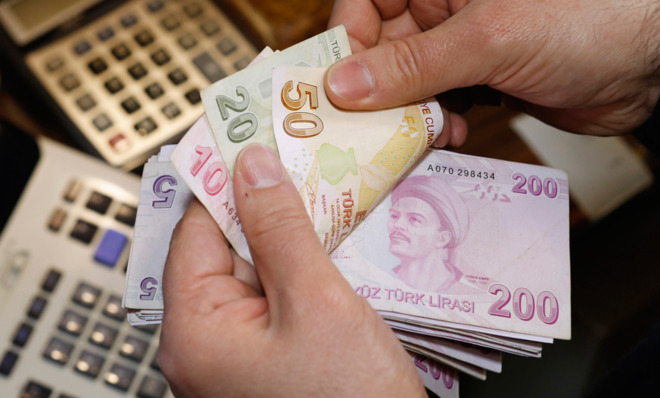Don't blame the Fed for the turmoil in emerging markets
The bubble hasn’t even burst yet, and people are pointing fingers at Ben Bernanke

A free daily email with the biggest news stories of the day – and the best features from TheWeek.com
You are now subscribed
Your newsletter sign-up was successful
A number of emerging market economies — most notably Turkey and Argentina — have run into severe economic problems since 2014 began. Both the Argentine peso and the Turkish lira have fallen off a cliff against the U.S. dollar due to economic instability — in Turkey, a corruption probe that may bring down the government, and in Argentina, looting amid police strikes, as well as rampant inflation. There are also fears that both countries are running out of the U.S. dollars necessary to conduct international trade.
Markets have taken badly to this news, especially in the context of the Federal Reserve’s plan to taper its quantitative easing programs. Many see the Federal Reserve’s monetary policy as having increased flows from the United States to emerging markets, where interest rates are higher. Once the spigot is turned off, some fear a bloodbath in developing economies.
Global stocks — both emerging markets and developed markets — dipped last week, and dipped again on Monday. Of course, one week and a day of losses doesn’t make for a global crisis yet. The Federal Reserve has not ended its stimulus, and this may just be a wobble. But even if we do have a global downturn, it would be wrong to blame America and the Federal Reserve, as some are already reaching to do.
The Week
Escape your echo chamber. Get the facts behind the news, plus analysis from multiple perspectives.

Sign up for The Week's Free Newsletters
From our morning news briefing to a weekly Good News Newsletter, get the best of The Week delivered directly to your inbox.
From our morning news briefing to a weekly Good News Newsletter, get the best of The Week delivered directly to your inbox.
In 2010, the Nobel economics laureate Joeseph Stiglitz — while criticizing the Federal Reserve’s monetary policy — voiced such a fear:
The U.S. Federal Reserve’s plan to expand stimulus will fuel potential asset bubbles in emerging countries with strong growth that don’t have capital control measures, Nobel Prize laureate Joseph Stiglitz said.
"I do have worries on countries like India," Stiglitz, a Columbia University economics professor, said today at a conference in Hong Kong. "The strong economies that don’t yet have capital control become the focal point for all this money." [Bloomberg]
So why do I disagree?
Essentially, because these kinds of bubbles happen organically, irrespective of what the Fed does. What has occurred in the emerging market economies like China, Russia, Brazil, India, Turkey, South Africa, etc in the last ten years is a huge outburst of growth — massive development, massive new industries, massive change in labor markets, massive infrastructure creation, massive demographic changes as people from the countryside flood into the cities. Look at the difference between Shanghai in 1987 and Shanghai in 2013! That kind of mass scale economic transformation has occurred in hundreds of cities across five continents.
These huge, rapid changes create huger uncertainty. Will the boom continue? Will real estate prices continue to rise? How will the boom end if it ends? Are emerging market governments misallocating resources by spending so much on infrastracture? Is the buildup of financial system debt excessive? Can the Chinese government (or the Turkish government, or the Argentine government, etc) prevent a crash or meltdown if necessary?
A free daily email with the biggest news stories of the day – and the best features from TheWeek.com
Whether or not the Federal Reserve is engaging in quantitative easing — and the future path of that easing — is of course a factor that investors consider in assessing the market and valuing assets. But it is just one factor. Without this factor (say there had been no American real estate crash in 2008, and no zero interest rate policy or quantitative easing) there would still be massive uncertainty as to the future economic outcomes of each of the emerging market economies. And with massive uncertainty, comes massive potential for investors as a group to ignore risk, and inflate bubbles in their irrational exuberance.
Of course, there have been massive flows of cash out of the United States since the beginning of quantitative easing (and in the decade before it even began). But wouldn't there have been anyway, given the huge growth rates these countries are experiencing and their development? The money is going there because labor is cheap, growth is high, and there are abundant natural resources like land awaiting development. All of this is is true with or without quantitative easing.
Investors’ negative expectations about the taper may result in a rout in emerging markets, or they may not. That will be decided in the future. Personally, I would hazard a guess that investors are mistakenly assuming that the Fed will end quantitative easing and raise rates at the expense of a stronger recovery. Still, investors overstating fears of an early end to stimulus in the United States does not that make an emerging market meltdown less likely. The massive uncertainty and instability in emerging markets exists whatever the Fed does or doesn't do.
John Aziz is the economics and business correspondent at TheWeek.com. He is also an associate editor at Pieria.co.uk. Previously his work has appeared on Business Insider, Zero Hedge, and Noahpinion.


